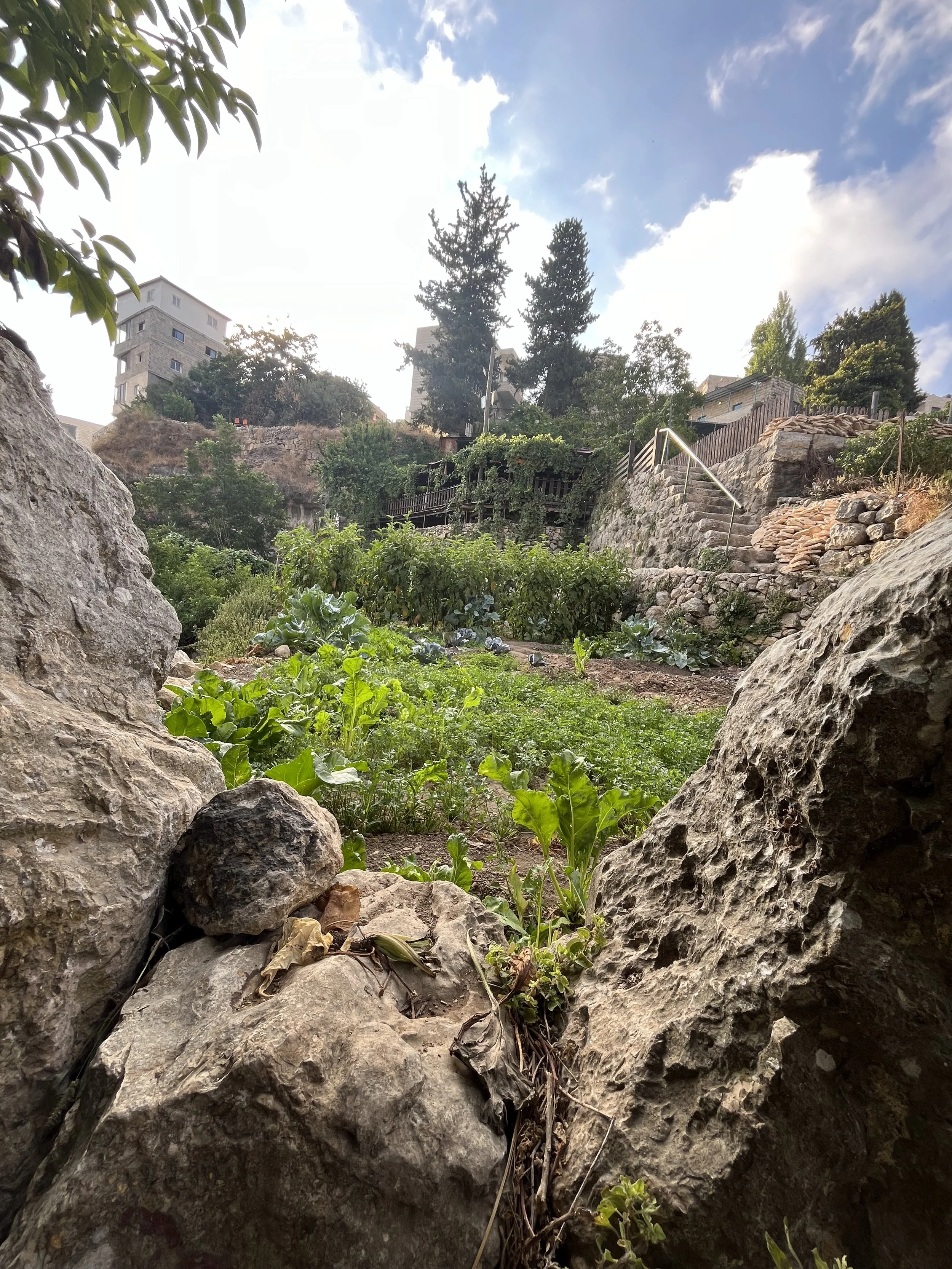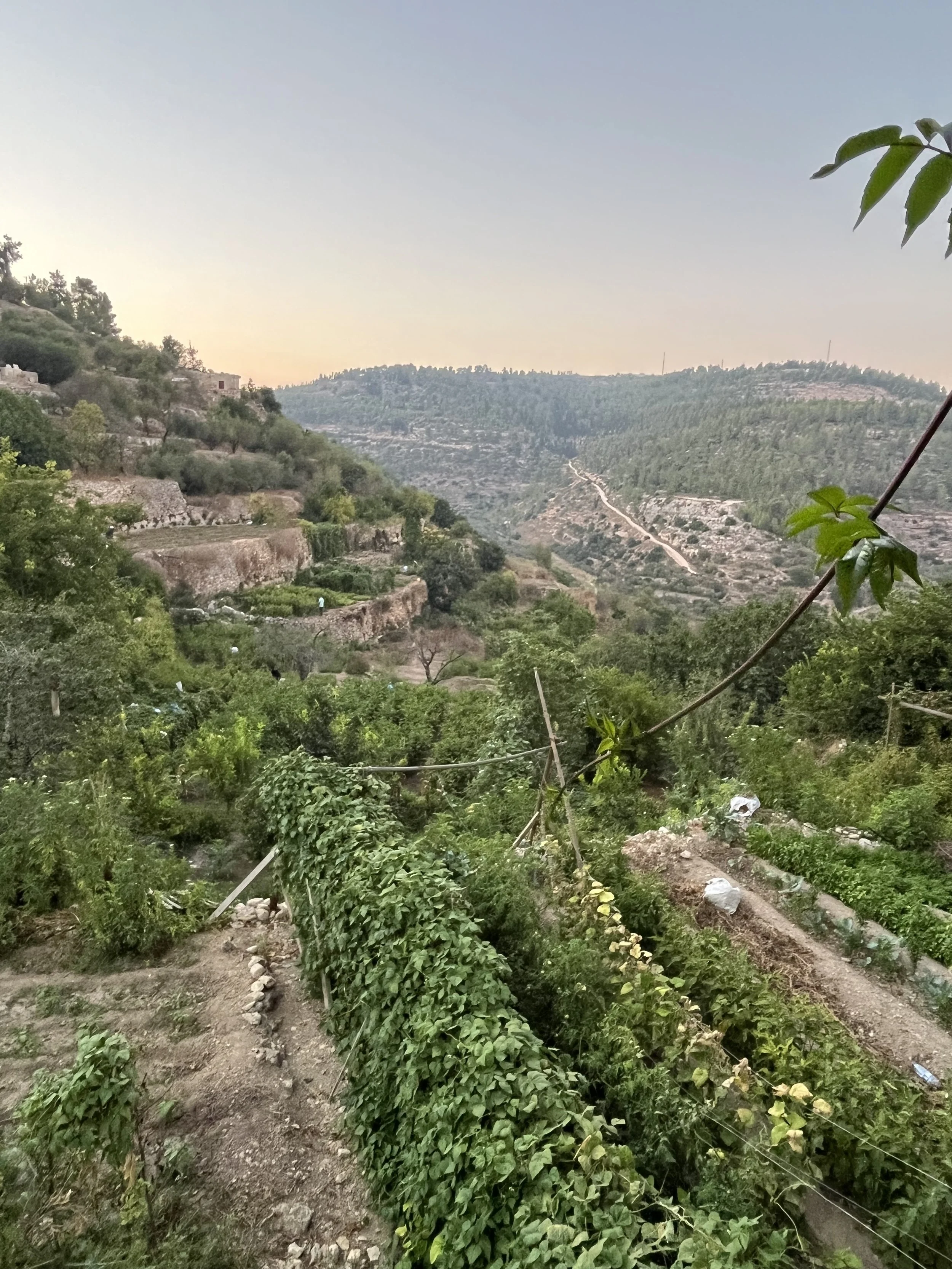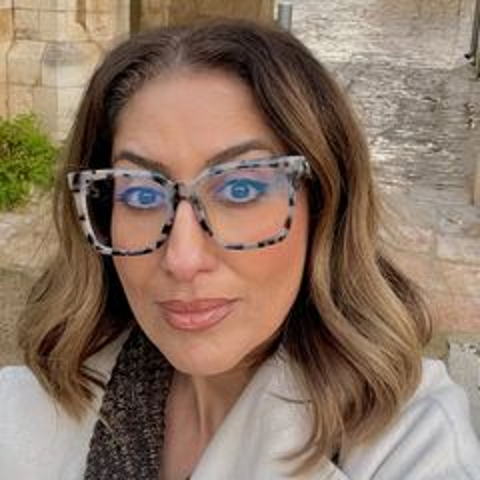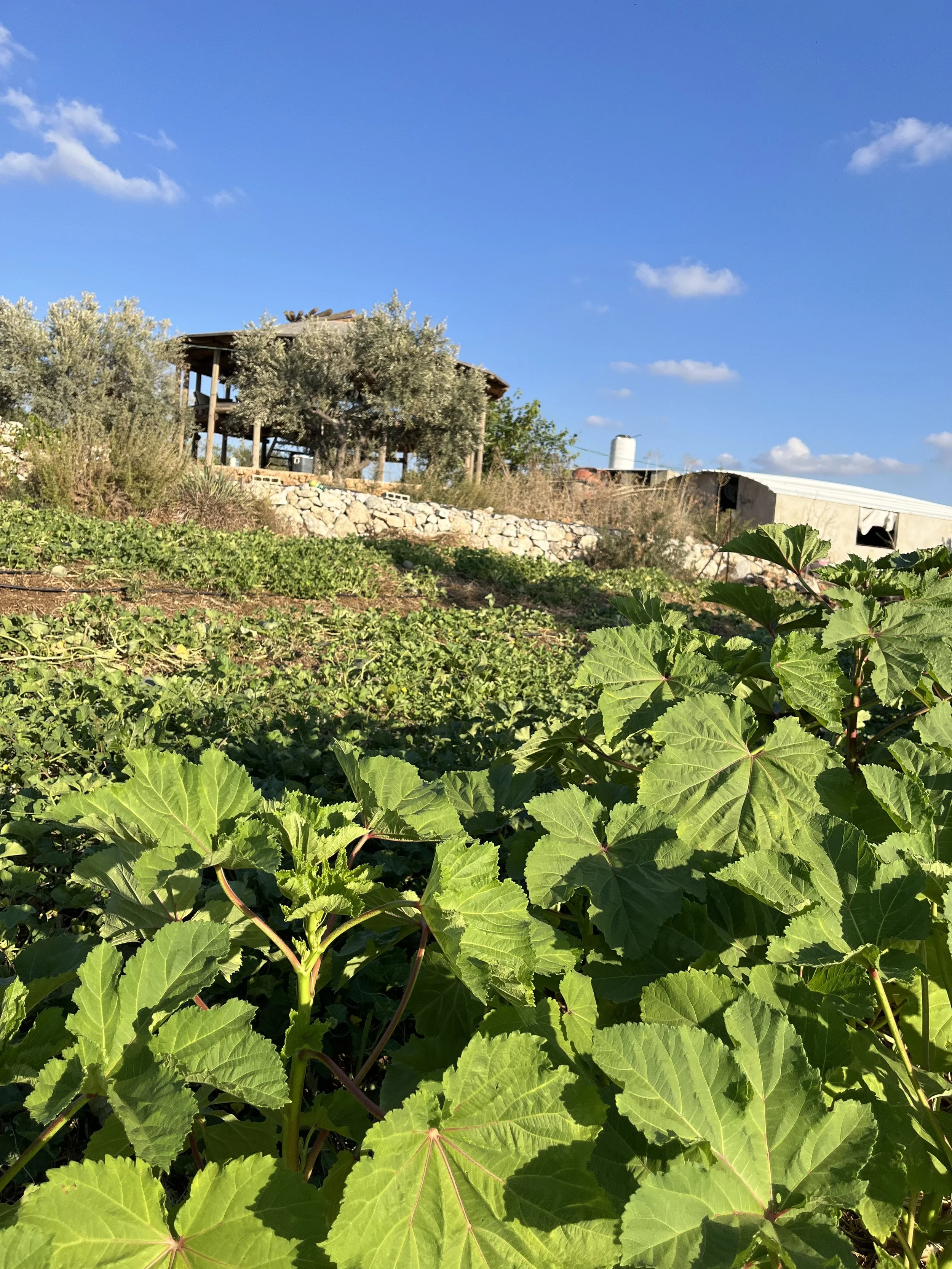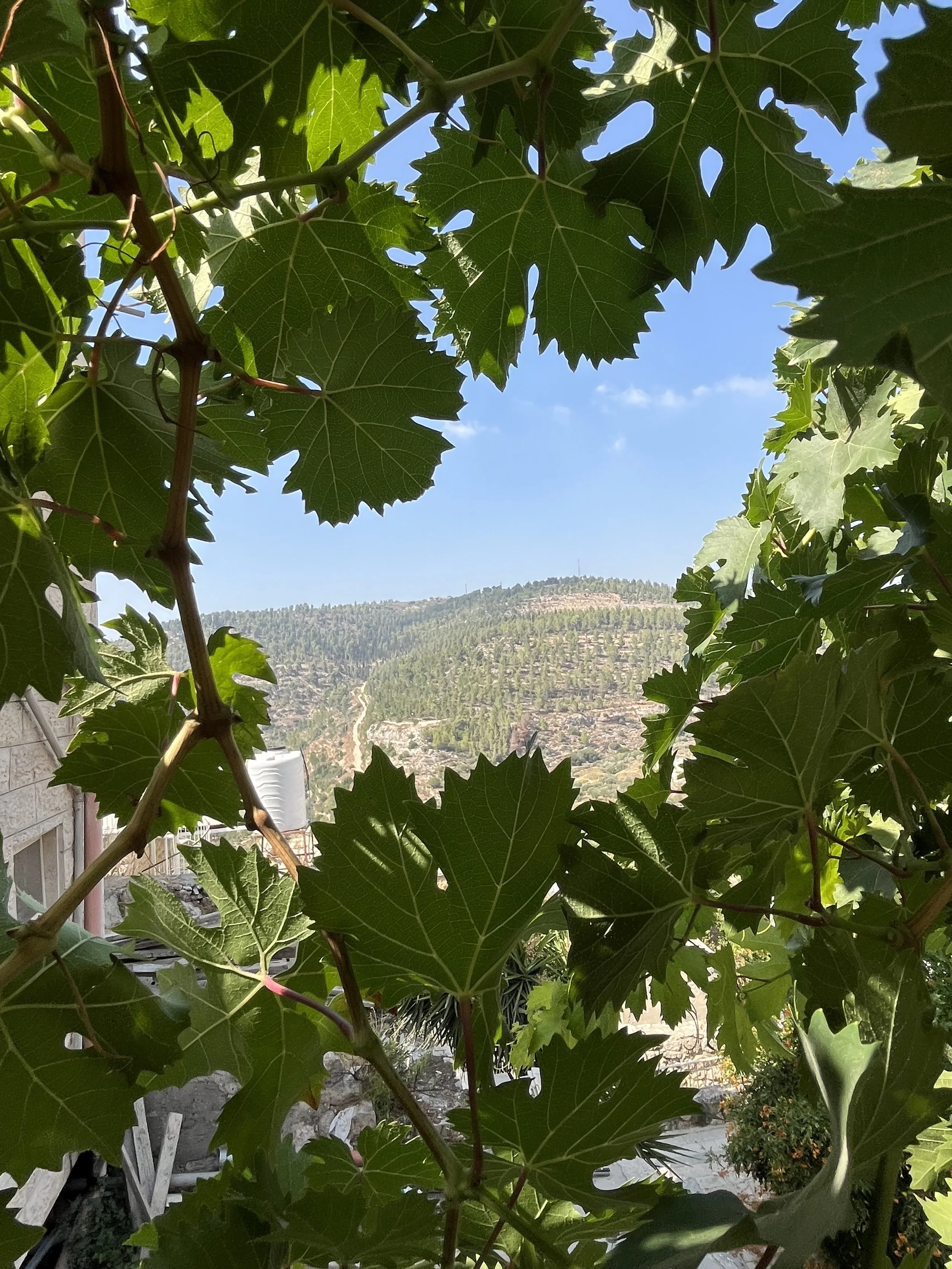Letters from the Palestinian diaspora
Occupied Palestine during Summer of 2024. (Courtesy of Lana Mustafa)
The following letters were submitted as a follow-up to our recent story, Thousands sign the N.J. No Votes for Genocide petition.
While interviewing No Votes for Genocide (NVFG) activist, Martina Manicastri, Political Writer Renee Johnston sought to provide a deeper understanding of the perspective of Palestinian activists. NVFG grew out of the Uncommitted movement established as an organized political lever to withhold votes and support from 2024 political candidates who refused to call for an end to the war in Occupied Palestinian Territories.
“Women of the Palestinian diaspora led the charge for this re-imagined campaign,” said Manicastri. Mona Dalia and Ghada Elnajjar are members of the NVFG movement and supported the campaign from their respective home states. Both offered some personal insights, experiences, and visions for the future of their ancestral homeland and their transplanted homeland, the U.S.
Post the 2024 elections, we present these personal stories in a moment of reflection as we construct a new path forward under a new administration that is tasked with ending the war in Occupied Palestinian Territories. They were written in response to a series of questions forwarded on behalf of Public Square Amplified, by Manicastri.
Public Square Amplified: Please share with our readers your story and that of your family to help us deepen our understanding of life under the Occupation of Palestinian Territories (OPT) and ways you are working for the self-determination of Palestinians.
Mona Dalia: Medical professional and leading activist in the NVFG campaign in New Jersey. Picture credit: No Votes For Genocide Instagram post (https://www.instagram.com/novotes4genocide/p/C_ljq7NRryO/?img_index=1)
My grandmother was from Khalil, my grandfather was from Anaba. My family has long lived in a state of constant vigilance, always mindful of our circumstances and grateful for what we have. We were raised to appreciate the little things and to understand that true happiness isn't tied to material possessions. We were taught to be grateful for what we have in life rather than what we do not. My family always referred to Palestine as "Al Balad," which means "the country." We didn't see it divided into sects like it is now; we saw it as one homeland. I believe our Muslim faith, which emphasizes unity, played a role in our family's perception of Palestine as one.
Prior to this moment, unconsciously, I believed as an American that I had some sense of entitlement, believing that my heritage and birthplace granted me certain privileges. However, this illusion of belonging has been shattered by the harsh reality of our expendability. The dehumanization of Palestinians has been a persistent reality that we are born into, defending our existence, but the past year has brought it into sharp focus, sparking global outrage.
Photos of various parts of Occupied Palestine during Summer of 2024. (Courtesy of Lana Mustafa)
This has exacerbated the generational trauma that has silently plagued our family for years. The feeling of displacement is profound: as an American, I am seen as foreign, and even at times, as an Arab, I am not fully accepted. Some of my family members have found comfort in their cultural or religious identity, while others struggle to reconcile their dual heritage.
We are reminded that we are not exceptions to any form of uniqueness that offers us some form of security or protection. While I may not have experienced the same direct impact as other family members under occupation, the intergenerational trauma has taken its toll. The collective suffering is a stark reminder that we are not immune to the consequences of occupation, even from afar. The reality of the occupation is a constant reminder of the fragility of human life and the arbitrary nature of suffering. We know that it could just as easily be us. This shared understanding divides us: some choose to distance themselves from the pain, while others find solace in connection and solidarity.
Why do we cling to our identity, even in the face of adversity? Because in a world that often overlooks and devalues us, our heritage is a source of strength and resilience. We yearn for a sense of belonging, to be seen, understood, and loved. But the constant reminder that we are 'other'—not human enough, not worthy enough—makes this longing even more profound. The occupation has undeniably shaped my family's experiences. Inspired by the wisdom of our elders, we recognize the importance of sacrifice and resilience. We witness the impact of occupation, even when afar, and how it can bring out the best of us and the worst of us. I guess after much debate, we’re human, after all.
Ghada Elnajjar: Mom, Palestinian-American, Political Organizer with No Peace No Peach. Image Credit: Ghada Elnajjar, Instagram profile picture (https://www.instagram.com/ghadaelnajjar/)
My name is Ghada Elnajjar, a Palestinian-American and a daughter of refugees from Gaza. I am a long-time political activist, community organizer, and proponent of increasing the Arab American community’s visibility and engagement in electoral politics at the national, state, and local levels. In 2020, I campaigned for then President-elect Joe Biden as part of Arab Americans for Biden, currently Arab Americans 4Ward, a coalition of Arab American community leaders and organizers dedicated to civic engagement and empowerment. I am currently the director of operations at an independent financial firm in Atlanta, Georgia.
Since October 7, I have lost more than 100 members of my extended family, including first cousins, as a result of the ongoing genocide perpetrated by Israel on the innocent men, women, and children of Gaza. As a result, I have worked tirelessly to give voice to the people of Gaza by amplifying their struggles and advocating for positive change. I have helped with various evacuation efforts from Gaza that include families of U.S. citizens, injured children for treatment in the U.S., and students attending U.S. universities with full or partial tuition waived.
Although Georgia has been our home for 38 years, my ancestral roots trace back centuries to the Joudah clan in Ashdod (Isdud in Arabic), a town in historic Palestine until 1948, when my grandparents were forcibly expelled as refugees during the Nakba also known as the establishment of the state of Israel. Both of my parents were born in refugee camps in Gaza.
My grandparents were Nakba survivors. My parents, who were born in refugee camps in Gaza, are Naksa (setback) survivors. Israel thought they could erase us, yet 76 years later, our continued resistance is a testament to our resilience. My father was a senior in high school during the 1967 war. Fearing that he would never finish his education, at 17 years old, my father fled Gaza to Jordan. He lived in a tent but was able to attend high school and graduate. He was able to receive a UN scholarship and later go to college at Ain Shams University in Cairo, Egypt, because to him, as with all Palestinians, education is a national priority. Unfortunately, leaving during a war, Israel stripped my father of his Palestinian identity card, exiling him outside his homeland. As a result, neither he nor his descendants are allowed to live in their historic homeland.
Photos of various parts of Occupied Palestine during Summer of 2024. (Courtesy of Lana Mustafa)
Before October 7, my relatives lived throughout the Gaza Strip. In the north, Gaza City; in the center, Deir El Balah; and in the south, Rafah. Since the indiscriminate Israeli carpet-bombing campaign on Gaza, I have lost at least 100 members of my extended family. On January 12, I woke up to the horrific news that Israel killed my first cousins, Tariq and Muhammed when an airstrike hit their family home. Muhammed was an aspiring artist and dreamt of having his own art studio to showcase his work to the world. Sadly, he lived and died in an open-air prison with no freedom of movement, and his dreams were cut short too soon.
On May 27, my cousin Yasmeen’s son Mohamed and his pregnant wife, also named Yasmeen, were killed by Israel’s savage attacks in Rafah’s supposed safe zone. Mohammed and his young wife were new college graduates, newly married and expecting their first child, a baby girl. My cousin Yasmeen had evacuated Gaza months before seeking treatment for her injured daughter Nourhan in Egypt. Imagine the agony of a mother who had to mourn the death of her son, daughter-in-law, and unborn grandchild all alone.
My aunt and husband, her children, spouses, grandchildren, and in-laws have all lost their homes in northern Gaza from the bombings and had to shelter with our other relatives in the center and the south. For the past year, they have suffered from a shortage of food, medicine, clean water, lack of electricity, and means of communication, making life totally unbearable. There are so many incidents of airstrikes hitting homes next to them, wiping off entire families, their friends, and neighbors. Every single day, we pray for their safety, not knowing if the next bomb will drop on them.
Israel had destroyed all the universities in Gaza, leaving the youth without any hope of finishing their education. Palestinians are often referred to as the world’s “best-educated refugees,” with literacy rates as high as 97.8%. Education is a form of resistance against the Israeli occupation. Schools have been centers of activism and cultural preservation and have played a key role in the Palestinian liberation movement.
I realize that a third party cannot win in this election and that a Trump administration may be worse. However, with over 100 members of my extended family killed in the Gaza genocide – an atrocity my government is complicit in – I cannot bring myself to support Kamala Harris in 2024. She has not indicated any real policy change or upheld U.S. and international laws.
I would have liked to have seen a signaling of clear policy change from President-elect Kamala Harris that called for an end to the Israeli genocide in Gaza by halting all arms shipments and pledging to uphold U.S. law by imposing an arms embargo on Israel. As a lawmaker and prosecutor, I hope at least that as President, Kamala Harris would refuse to use U.S. taxpayer dollars to support Israel’s violations of U.S. laws.
Short-term hopes: of course, I hope for an immediate end to the genocide with a permanent ceasefire, the halting of all arms shipments to Israel, and imposing an arms embargo. Furthermore, for the U.S. and the international community to act immediately to address the humanitarian catastrophe in Gaza by providing lifesaving humanitarian support. This includes supplying desperately needed medicine and medical equipment, transportation of Palestinians with serious injuries to hospitals in the region and abroad for treatment, and establishment of field hospitals on the ground; address the food famine and extreme hunger through immediate onshore deliveries of food and fuel to restart bakeries and cooking stoves; address the water shortage and contamination by repairing the lines that previously supplied Gaza with clean water from Israel and supplying fuel to the water desalination plants on the coast to ensure their operation; set plans for the reconstruction and rebuilding of Gaza to offset the total devastation and move towards recovery.
Long-term hopes: the time has come to establish a final and permanent solution: an end to the Israeli occupation of Palestinian land and an establishment of an independent, viable, contiguous, and free Palestinian state. The world is witnessing a genocide. And it must end. THE OCCUPATION MUST END.”



